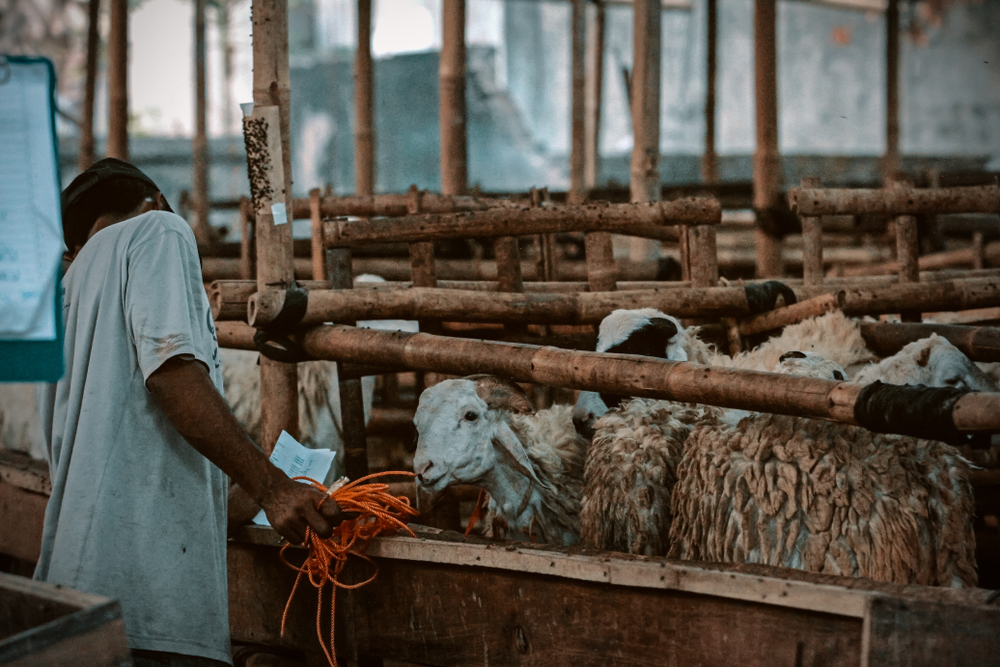Indonesia prepares 1.3 mln local livestock for Eid al Adha festival of sacrifice, up 10 pct from 2018
JAKARTA - Indonesia’s government has prepared 1.3 million livestock for the Eid al Adha festival of sacrifice this year, up 10 per cent from 2018, director general of livestock and animal health at the agriculture ministry Ketut Diarmita told Salaam Gateway.
“We have already prepared animals for sacrificial worship in 2019 as many as 1.3 million tails, consisting of 376,487 cows, 12,958 buffaloes, 716,089 goats as well as 214,178 sheep,” said the official.
“Based on these data, the estimated needs of livestock for Eid al Adha 2019 can be guaranteed fully met from the provision of local livestock," he added.
Eid al Adha will fall on August 11 in Indonesia this year.
342,261 cows, 11,780 buffaloes, 650,990 goats and 219,253 sheep were slaughtered for Eid al Adha last year, totaling 1.2 million animals, according to Diarmita.
HEALTH AND SAFETY
The general directorate of livestock and animal health has initiated steps to ensure the health and safety of both livestock and humans.
This year, three new abattoirs, in West Java, Banten and West Nusa Tenggara, where demand is high, have been designated for the ritual slaughters to add to existing ones spread across West Sumatera, West Java, East Java, Papua, Jakarta, Banten, West Nusa Tenggara, and Central Java.
This is a move away from the traditional practice of using public and pedestrian walkways, and is needed to safeguard the public against the risk of transmission of zoonotic diseases that can be transferred from animals to humans or vice versa. The move to dedicated abattoirs is funded by the state.
Animal health inspection, monitoring, and the supervision of sacrificial slaughter have been designated to relevant authorities, including field staff to monitor and supervise ritual slaughters.
Each animal has its own health certificate to be completed by professionals.
“The role of animal doctor, paramedic and field staff are very important. Post-mortem is also important to ensure organs such as heart, lung and lymph are normal and free from diseases,” said Diarmita.
SELF-SUFFICIENTCY EFFORTS
The current average market price for a cow of between 350 kilograms and 450 kilograms ranges from 20 to 28 million Indonesian rupiah ($1,419 - $1,987). Diarmita expects prices to be cheaper for Eid al Adha.
The government has been running a special artificial insemination programme (UPSUS SIWAB) since February 2017 to help breeders improve livestock production and increase inventory. The programme prioritises dairy cows over beef cattle.
As at June 2019, the programme produced 10,543,296 calves from 10 million acceptor cows, with 69.19 per cent pregnancy rate target achieved from 7.2 million cows, and 64.18 per cent of the 5.76 million birth rate target met.
Further, 8,985 Brahman Cross cows have been imported and 392 Belgian Blue calves born so far.
Domestic supply of livestock, as opposed to foreign imports, help control market prices.
(Reporting by Yosi Winosa; Editing by Emmy Abdul Alim [email protected])
© SalaamGateway.com 2019 All Rights Reserved
